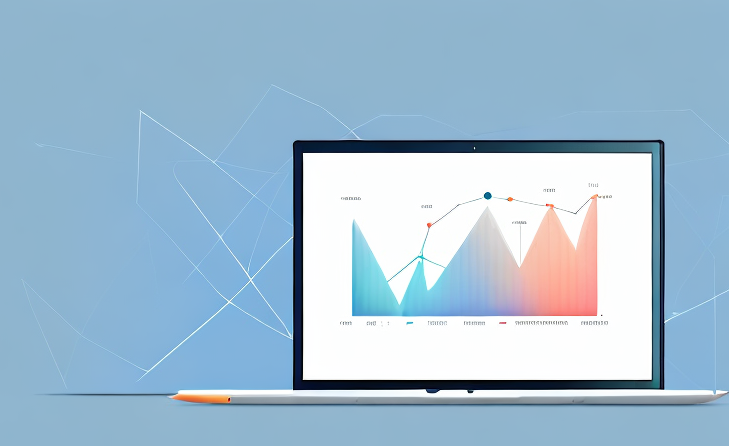Data Jobs: Exploring the Growing Demand for Data Professionals
19 Jul, 20235
Contents
- The Rise of Data-Driven Decision Making
- The Importance of Data in Modern Business
- Industries Embracing Data Analytics
- Key Data Professional Roles and Their Responsibilities
- Data Analysts
- Data Scientists
- Data Engineers
- Data Architects
- Data Visualization Specialists
- Essential Skills for Data Professionals
- Technical Skills
- Soft Skills
- Domain Knowledge
- Educational and Training Pathways for Data Careers
- Formal Education
- Online Courses and Bootcamps
- Professional Certifications
Data Jobs: Exploring the Growing Demand for Data Professionals
Data is the lifeblood of modern business, and companies around the world are waking up to the importance of data-driven decision making. The ability to collect, analyse, and derive meaningful insights from data has become a critical competitive advantage in today's fast-paced economy. As a result, the demand for data professionals is skyrocketing, and careers in data are among the most sought-after in the job market.
The Rise of Data-Driven Decision Making
Businesses today have access to vast amounts of data, generated by everything from customer interactions and sales transactions to social media and IoT devices. This data holds valuable insights that can help companies make better decisions, improve their operations, and stay ahead of the competition. Data-driven decision making (DDDM) refers to the process of using data and analytics to inform business decisions.
The rise of data-driven decision making has been driven by the increasing availability of data and the growing importance of analytics in modern business. With the rise of big data, businesses are able to collect and analyse vast amounts of information about their customers, operations, and markets. This information can be used to identify patterns, trends, and insights that would be impossible to detect using traditional methods.
The Importance of Data in Modern Business
Data is the key to understanding customers, optimising operations, and predicting market trends. By leveraging data insights, businesses can make smarter decisions, reduce risk, and identify new opportunities for growth. Data can be used to improve everything from marketing campaigns and product design to supply chain management and customer service.
For example, data can be used to identify customer preferences and buying habits, allowing businesses to tailor their marketing campaigns and product offerings to better meet the needs of their customers. Data can also be used to optimise supply chain management, reducing costs and improving efficiency. By using data to predict market trends and customer behavior, businesses can stay ahead of the competition and identify new opportunities for growth.
Industries Embracing Data Analytics
While data is important for all businesses, some industries have been quicker to adopt data analytics than others. Finance and banking, healthcare, retail, and e-commerce are among the industries that are at the forefront of the data revolution. These industries are investing heavily in data-driven strategies and hiring data professionals at an unprecedented rate.
In the finance and banking industry, data is being used to improve risk management, fraud detection, and customer service. Healthcare providers are using data to improve patient outcomes and reduce costs. Retailers are using data to optimise inventory management and personalise the customer experience. E-commerce companies are using data to improve website design, optimise pricing strategies, and increase customer loyalty.
As data continues to play an increasingly important role in modern business, companies that fail to embrace data-driven decision making risk falling behind their competitors. By investing in data analytics and hiring data professionals, businesses can unlock the full potential of their data and gain a competitive advantage in their industry.
Key Data Professional Roles and Their Responsibilities
There are several key roles in the field of data, each with its own set of responsibilities. These roles are vital to businesses that rely on data to make informed decisions. Let's take a closer look at each of these roles:
Data Analysts
Data analysts are responsible for collecting, processing, and interpreting large volumes of data to derive insights and inform business decisions. They use statistical analysis, data modeling, and data visualisation techniques to identify trends and opportunities for improvement.
Data analysts play a critical role in helping businesses understand their customers, products, and services. They work with stakeholders across the business to identify key performance indicators (KPIs) and develop metrics to measure progress towards these goals.
For example, a data analyst working for an e-commerce company might analyse website traffic data to identify trends in user behavior. They might use this data to optimise the website's user interface, improve the checkout process, or develop targeted marketing campaigns.
Data Scientists
Data scientists are responsible for developing and testing algorithms and predictive models to find patterns in data and make predictions about future outcomes. They work to identify correlations and causal relationships in data and often work closely with data engineers to build and optimise scalable data pipelines.
Data scientists are highly skilled in mathematics, statistics, and computer science. They use these skills to develop machine learning models that can be trained on large datasets to make predictions about future outcomes.
For example, a data scientist working for a healthcare company might develop a machine learning model to predict which patients are at high risk of developing a particular disease. This model could be used to develop targeted interventions to prevent the onset of the disease.
Data Engineers
Data engineers are responsible for designing, building, and maintaining the infrastructure required to support data processing and analysis. They develop and maintain complex data pipelines that can handle large volumes of data and ensure that data is accurate, consistent, and accessible to other members of the data team.
Data engineers are skilled in software engineering, database design, and distributed computing. They use these skills to develop and maintain data pipelines that can handle large volumes of data in real-time.
For example, a data engineer working for a financial services company might develop a real-time data pipeline to analyse stock market data. This pipeline could be used to identify trends in stock prices and make automated trades based on these trends.
Data Architects
Data architects are responsible for designing the data infrastructure and systems that enable businesses to collect, store, and analyse data effectively. They work closely with data engineers to ensure that the data architecture is scalable, secure, and able to meet the needs of the business.
Data architects are skilled in database design, data modeling, and enterprise architecture. They use these skills to design data systems that can handle the complex needs of modern businesses.
For example, a data architect working for a retail company might design a data warehouse that can store data from multiple sources, including point-of-sale systems, e-commerce websites, and social media platforms. This data warehouse could be used to analyse customer behavior and develop targeted marketing campaigns.
Data Visualisation Specialists
Data visualisation specialists are responsible for creating compelling visualisations and dashboards that help businesses understand and interpret complex data. They use tools like Tableau and PowerBI to translate data insights into actionable insights and communicate these insights to stakeholders across the business.
Data visualisation specialists are skilled in graphic design, data analysis, and user experience design. They use these skills to create visualisations that are both informative and engaging.
For example, a data visualisation specialist working for a healthcare company might create a dashboard that displays patient data in real-time. This dashboard could be used by doctors and nurses to monitor patient health and make informed decisions about patient care.
Essential Skills for Data Professionals
While the specific skills required for each data role can vary, there are several essential skills that all data professionals should possess:
Technical Skills
Data professionals should have a solid grounding in programming languages like Python and R, as well as SQL and database management. They should be familiar with statistical modeling, machine learning, and data visualisation tools and techniques.
Having a deep understanding of the technical aspects of data analysis is essential for data professionals. They must be proficient in programming languages like Python and R, which are commonly used in data analysis. SQL and database management are also important skills that allow data professionals to effectively store and retrieve large amounts of data. In addition, data professionals should be familiar with statistical modeling techniques, such as regression analysis and hypothesis testing, as well as machine learning algorithms, which are used to build predictive models.
Data visualisation is another important aspect of data analysis. Data professionals should be well-versed in data visualisation tools and techniques, such as Tableau and ggplot, which allow them to create compelling visualisations that effectively communicate data insights to stakeholders.
Soft Skills
Data professionals should be strong communicators who can translate technical concepts into plain language for non-technical stakeholders. They should be able to work collaboratively as part of a team and be comfortable working in a fast-paced, results-driven environment.
Effective communication is a crucial skill for data professionals. They must be able to clearly communicate complex technical concepts to non-technical stakeholders, such as business leaders and decision-makers. This requires the ability to translate technical jargon into plain language that is easily understood by others.
Collaboration is also important for data professionals, as they often work as part of a team on complex data projects. Being able to work effectively with others, share ideas, and provide constructive feedback is essential for success in this field.
Data professionals must also be comfortable working in a fast-paced, results-driven environment. They must be able to work efficiently and effectively to meet tight deadlines and deliver high-quality results.
Domain Knowledge
Data professionals should have a deep understanding of the business they are working in and the industry trends that are driving data-driven decision making. This knowledge helps them to identify relevant data sources, develop business-appropriate models, and communicate data findings to stakeholders effectively.
Having a strong understanding of the business and industry trends is essential for data professionals. This knowledge allows them to identify relevant data sources and develop business-appropriate models that effectively address the needs of the organisation. In addition, understanding the business and industry trends helps data professionals to effectively communicate data findings to stakeholders, such as business leaders and decision-makers.
Overall, possessing a combination of technical, soft, and domain-specific skills is essential for success as a data professional. By developing these skills, data professionals can effectively analyse data, communicate insights, and drive data-driven decision making within their organisations.
Educational and Training Pathways for Data Careers
There are several educational and training pathways available for people interested in pursuing data careers. These include:
Formal Education
Many data professionals have degrees in computer science, engineering, statistics, or a related field. These programs provide a strong foundation in technical skills and often include opportunities for internships and real-world experience.
Online Courses and Bootcamps
There are many online courses and bootcamps available for people looking to learn data skills or further their careers in data. These courses range from entry-level introductions to programming languages and data analysis to more advanced topics like machine learning and big data.
Professional Certifications
There are several professional certifications available for data professionals, including the Certified Analytics Professional (CAP) certification and the Microsoft Certified Azure Data Scientist Associate certification. These certifications demonstrate proficiency in specific data skills and can boost employability and career advancement.
Conclusion
The demand for data professionals is growing rapidly, and the need for skilled data professionals is likely to continue to increase as businesses turn to data-driven strategies to gain a competitive edge.
Whether you are just starting your career in data or looking to make a career change, there are many opportunities available to develop your skills and pursue a rewarding career in data. To take the next step in your career, please don't hesitate to get in touch.



